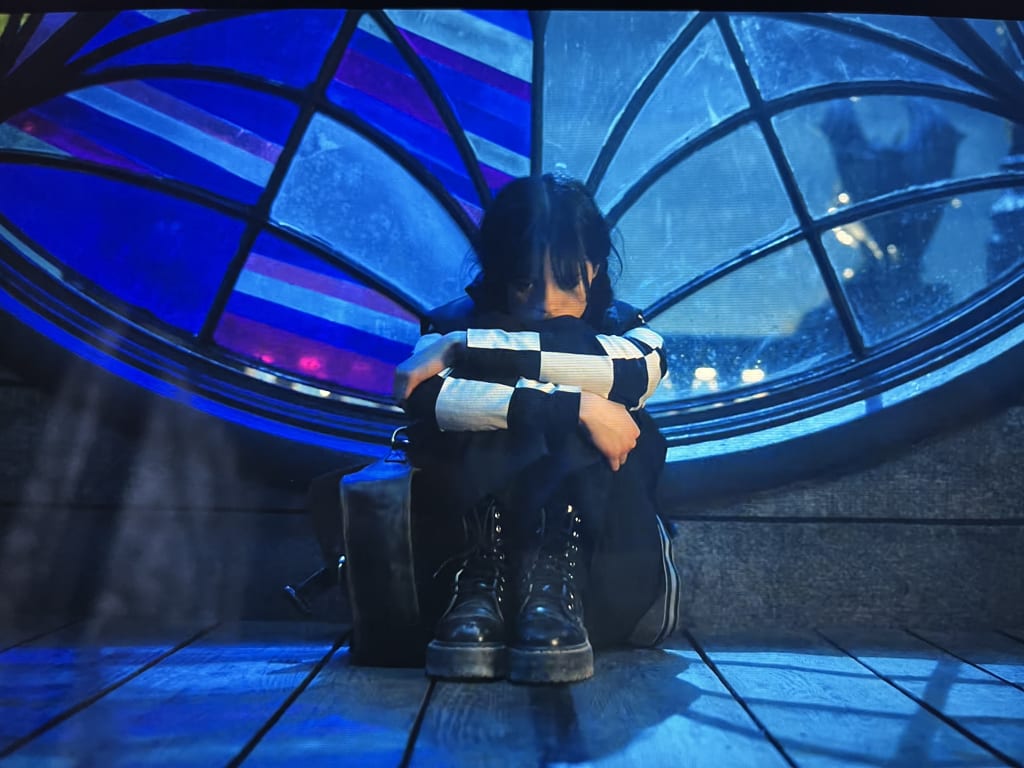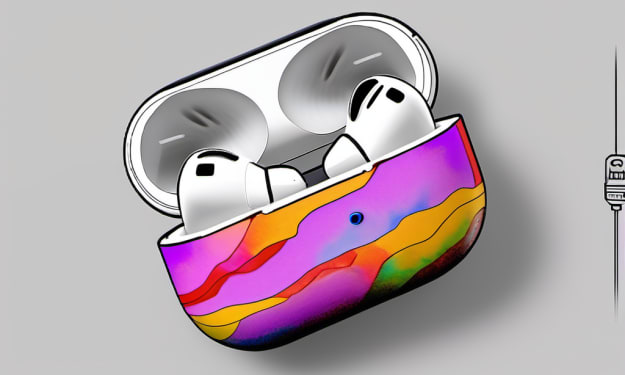“Quid Pro Woe”: A Response to Wednesday Episode 6
Autism, friendship, and why Wednesday Addams deserves better.

We all know that Wednesday Addams of the new Netflix series is extremely autistic coded. Her blunt reluctance to participate in uncomfortable social situations, difficulty engaging with peers’ emotions, and extreme fixation on the mysteries of Nevermore are some, but certainly not all of the indicators written into the script. I found her opposition to bullshit very refreshing, but continued to be frustrated, angered, and even heartbroken, by each new fight picked by a character who felt she owed them something.
For the first half of the season I tolerated their sentiments. Most of the comments were brief, offhand background noise that I found irritating but in the typical scripted teenage drama way. Tyler’s speech about Wednesday giving him “signals” was the first time I took a step back and truly questioned what world these people were living in, but her fight with Enid at the end of episode six hit me the hardest:
Enid: “I’ve tried really, really, really hard to be your friend. Always put myself out there. Thought of your feelings. Told people, ‘I know she gives off serial killer vibes, but she’s really just shy.’”
Wednesday: “I never asked you to do that.”
Enid: “You didn’t have to, because that’s what friends do. They don’t have to be asked. And the fact that you don't know that says everything. You want to be alone, Wednesday? Be alone.”
A lot of articles and analyses have been written about Wednesday’s behavior and her autistic traits, but I haven’t seen any commentary about the way her friends act and engage with her.
- Enid, Xavier, and Tyler all have a pattern of inserting themselves into her life, not taking no for an answer, and then lashing out when the path puts them in danger.
- She may “use” her friends for backup, but they “use” her for adventure, romance, and to perpetuate the social norms they don’t think twice about as neurotypical teenagers.
- Her personality is not an obstacle to force their way past. They keep encouraging her to break out of her shell and give her heart a chance, but they’re really waiting for, and expecting, her to become someone else for the sake of their approval and comfort.
- Enid claims that friends “don’t have to be asked,” but unspoken understandings are neither mandatory nor inherently healthy for a friendship to flourish.
- Getting upset with someone for not expressing gratitude for something they didn’t want in the first place is manipulative and unfair.
Was Enid sincerely thinking of Wednesday’s feelings, or is she just guessing and filling in blanks based on her own personal biases? For instance, I don’t think Wednesday likes to be alone; I think she prefers to be left alone, but appreciates companionship when it respects her boundaries. Being a friend isn’t about laughing off someone’s quirks and waiting for them to come to you because you’re so certain that your way is the correct or proper one—it’s about embracing the differences and making space for someone to show up as their full self. But given Enid’s bubbly, hypersocial personality, I’m sure she equates solitude with loneliness and sees Wednesday’s unpartnered nature as a negative or worrisome trait.
I don’t hate any of her friends or “love interests,” if you can even call them that, but I do think their reasonings for calling Wednesday out were selfish and contrived. All Wednesday ever wanted is to exist without interference and solve a crime, and it’s the people around her who determinedly drag her off-course so she can do “normal” things with her “normal” peers. In fact, there’s irony in Jericho’s deep social divide being between outcasts and normies, given how Nevermore treats its outcast-iest.
There are no “buts” with my fixations. I don’t watch hours and hours of YouTube videos about interior design just to kill time until someone invites me to a party; my knee-jerk reactions to people standing in the way of walking traffic doesn’t go away when I fall in love; and I cherish alone-time in the same house that I share with my romantic partner. My “rules” are the way I am, and truth be told, a great indicator of a healthy friendship is someone who sees and celebrates those quirks rather than look past them or wait for them to go away.
Wednesday Addams gives off serial killer vibes, and she’s proud of it.
About the Creator
Kelsey O'Regan (they/them/theirs)
Creator/writer of BIFL: The Series, professional fixator, recovering Online Person.






Comments
There are no comments for this story
Be the first to respond and start the conversation.